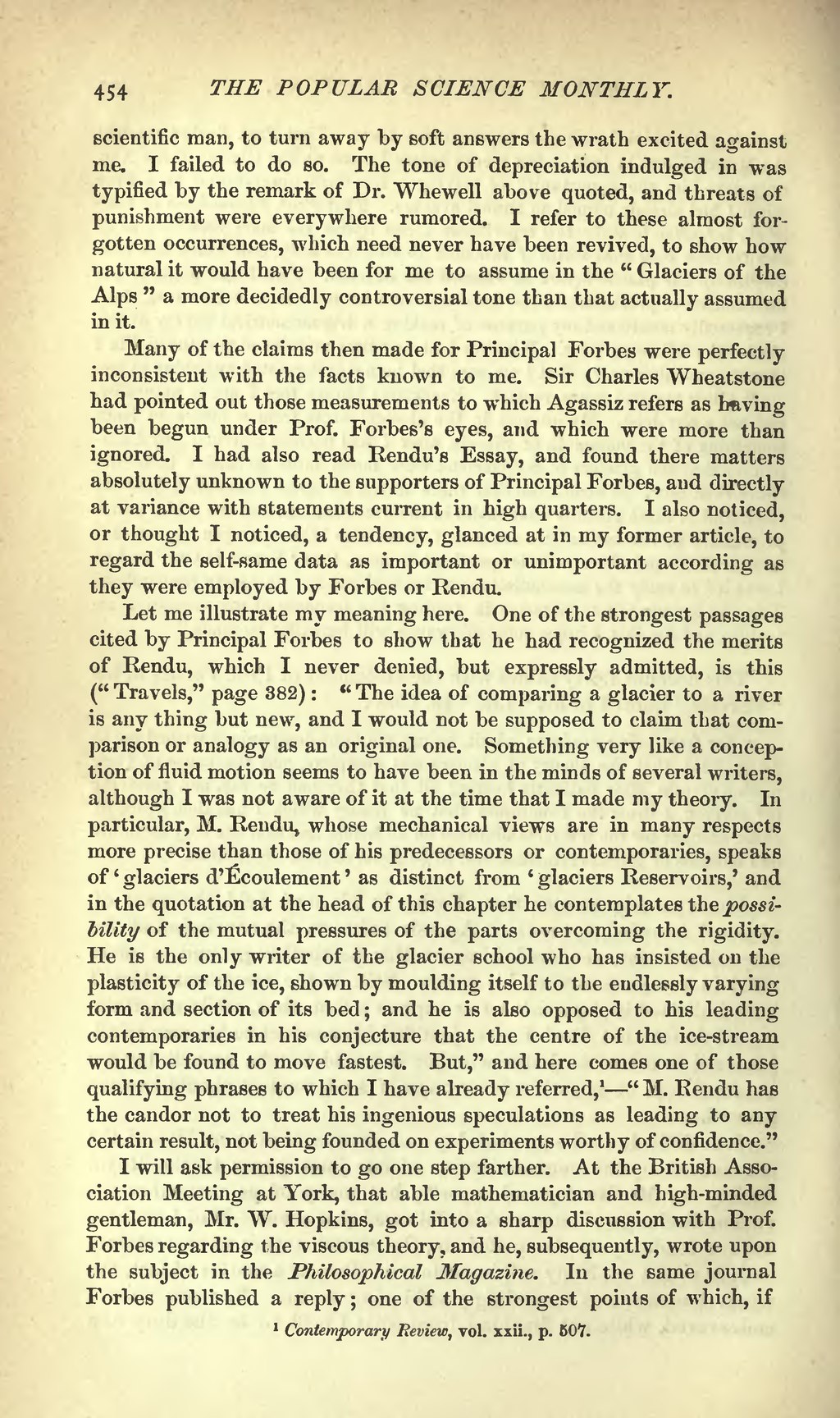scientific man, to turn away by soft answers the wrath excited against me. I failed to do so. The tone of depreciation indulged in was typified by the remark of Dr. Whewell above quoted, and threats of punishment were everywhere rumored. I refer to these almost forgotten occurrences, which need never have been revived, to show how natural it would have been for me to assume in the "Glaciers of the Alps" a more decidedly controversial tone than that actually assumed in it.
Many of the claims then made for Principal Forbes were perfectly inconsistent with the facts known to me. Sir Charles Wheatstone had pointed out those measurements to which Agassiz refers as having been begun under Prof. Forbes's eyes, and which were more than ignored. I had also read Rendu's Essay, and found there matters absolutely unknown to the supporters of Principal Forbes, and directly at variance with statements current in high quarters. I also noticed, or thought I noticed, a tendency, glanced at in my former article, to regard the self-same data as important or unimportant according as they were employed by Forbes or Rendu.
Let me illustrate my meaning here. One of the strongest passages cited by Principal Forbes to show that he had recognized the merits of Rendu, which I never denied, but expressly admitted, is this ("Travels," page 382): "The idea of comparing a glacier to a river is any thing but new, and I would not be supposed to claim that comparison or analogy as an original one. Something very like a conception of fluid motion seems to have been in the minds of several writers, although I was not aware of it at the time that I made my theory. In particular, M. Rendu, whose mechanical views are in many respects more precise than those of his predecessors or contemporaries, speaks of 'glaciers d'Écoulement' as distinct from 'glaciers Reservoirs,' and in the quotation at the head of this chapter he contemplates the possibility of the mutual pressures of the parts overcoming the rigidity. He is the only writer of the glacier school who has insisted on the plasticity of the ice, shown by moulding itself to the endlessly varying form and section of its bed; and he is also opposed to his leading contemporaries in his conjecture that the centre of the ice-stream would be found to move fastest. But," and here comes one of those qualifying phrases to which I have already referred,[1]—"M. Rendu has the candor not to treat his ingenious speculations as leading to any certain result, not being founded on experiments worthy of confidence."
I will ask permission to go one step farther. At the British Association Meeting at York, that able mathematician and high-minded gentleman, Mr. W. Hopkins, got into a sharp discussion with Prof. Forbes regarding the viscous theory, and he, subsequently, wrote upon the subject in the Philosophical Magazine. In the same journal Forbes published a reply; one of the strongest points of which, if
- ↑ Contemporary Review, vol. xxii., p. 507.

